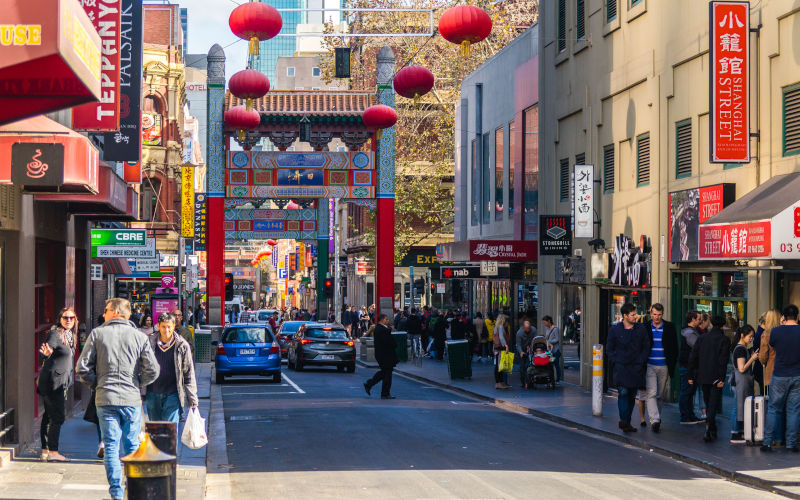Chinese-Australian voters emerge, reject anti-Asian hatred stoked by right-wing politicians
December 5, 2022
Asian-Australians are becoming an increasingly influential bloc in steering and influencing federal and state elections. Their significance has been noted by aroused psephologists, surprised pundits and the chattering classes since Anthony Albanese won the federal election in May this year.
Just prior to the election, some Liberal Party MPs sensed trouble. The Sunday Age noted the concerns of Liberal MP Keith Wolahan who, on sensing something was simmering in the electorate, tasked his election team to make 2,500 calls to Chinese-Australians in his electorate. The results proved toxic.
With the seat of Menzies having the third-highest percentage of Chinese-Australian residents in the country (27 per cent), Wolahan was fortunate to survive the swing against him of 6.3 per cent. As the Sunday Age acknowledged, then Prime Minister Scott Morrison and his defence minister Peter Dutton had been dialling up the rhetoric on China, claiming Labors Anthony Albanese would appease Beijing in government. It was the language that many voters of Chinese heritage detested, prompting fears for their safety and concerns about not being able to see relatives on the Chinese mainland.
At the federal level, Ben Raue of the Tally Room was unreserved in noting that booth swings in a bunch of suburban seats in Sydney and Melbourne were particularly strong in the areas with a large population of Chinese-Australian voters. Seats such as Reid, Bennelong and Chisholm, all with a large Chinese-Australian population, yielded returns for Labor. In Raues conclusion, suburbs with low proportions of those with Chinese ancestry voted both ways, while those with higher proportions almost entirely swung towards Labor, some moving quite far.
In Victoria, the Liberals were again found wanting at the state elections just passed. As Wanning Sun noted in Crikey, Labor retained such marginal seats as Box Hill and Ashwood, even gaining Glen Waverley. The Liberals even struggled in Kew. The reason: Chinese-Australian voters. Sun also reminds us that voters from other Asian backgrounds Malaysian Australians, Singaporean Australians among them would have also felt the anti-Asian hatred stoked by right-wing media and politicians.
The Victorian Labor government of Daniel Andrews had been a steady target for Murdocrats and the Coalition for some years, with the Premier earning the moniker of Red Dan for his convivial relations with Beijing. In sharp contrast to the Commonwealth, his government showed much interest in making two non-binding agreements linked to Beijings Belt and Road Initiative (BRI). At the federal level, this infuriated the grey suits in Canberra.
In 2019, then Prime Minister Scott Morrison stated that the BRI was Chinas initiative and doesnt require Australia to endorse that initiative. It was a sovereign choice by Beijing. We have a neutral position on that. We dont sign up to it. We dont participate in it thats the position of the Australian government. That did not mean that State governments were going to be allowed to make up their own minds.
The agreements made by the Andrews government with Beijing were subsequently cancelled by the Morrison government as being against the national interest, a point never proved or substantiated. In the words of Foreign Minister Marise Payne, the agreements were inconsistent with Australias foreign policy or averse to our foreign relations. Despite this, Australia remained absolutely committed to our continuing engagement with China.
Victorian Liberal Party populists also attacked Andrews relentlessly in parliament for his China focus. The soon to be ex-leader of the Victorian Liberals, Matthew Guy, and his number challenged shadow treasurer David Davis worried about the range of major agreements that had been signed with the Chinese Communist Party including companies that are wholly owned by the Chinese Communist Party, John Holland being one of them, for a number of major projects in this state: the metro project and the West Gate Tunnel.
At the think tanking level, Peter Jennings, Executive director of the anti-Chinese, US-funded thinktank ASPI, went so far as to accuse Andrews of being flagrantly reckless in joining the BRI, thereby undermining a bipartisan Australian foreign policy position. Andrews had ignored federal leadership in this area, which is mandated by the constitution. Such nasty sentiments were bound to leave their mark on the local Chinese-Australian electorate.
While Liberal Party strategists in Victoria were cognisant about the China factor, their imagination only went so far as to run advertisements on the Chinese social media platform WeChat. Labor went for an old fashioned, boots-on-the-ground campaign of community engagement, focusing on food, arts, seniors clubs, music groups, and tai chi groups.
Andrews went so far as to put in a personal appearance in Glen Waverley at the start of the campaign to seek the support of the Chinese community, a point that did not go unnoticed in Melbournes Chinese-language media.
In ruing the poor returns for his party, the retiring Victorian state MP Tim Smith expressed some dismay that the voters had not distinguished his partys own policy against the Chinese Communist Party, which was distinct to attitudes towards the Chinese as people. Such voters took it personally. This was always a nonsensical distinction that was never going to translate into returns at the ballot box.
Such electoral shifts raise an interesting, if obvious point: how far will the Australian Sino-phobic establishment, marching to Washingtons tune, continue its deluded way before learning from their mistakes?
The lessons for Albanese and Labor Party strategists are clear. The Chinese, and more broadly the Asian voter base, fuelled electoral victories at both the State and Commonwealth level. But the tank can just as well be emptied when the resources run dry. While his government has opened a tentative dialogue with Beijing and initiated a thaw, Australias role in AUKUS, and its subordination to the US war machine in the Indo-Pacific, may, in time, prove a telling electoral handicap.

